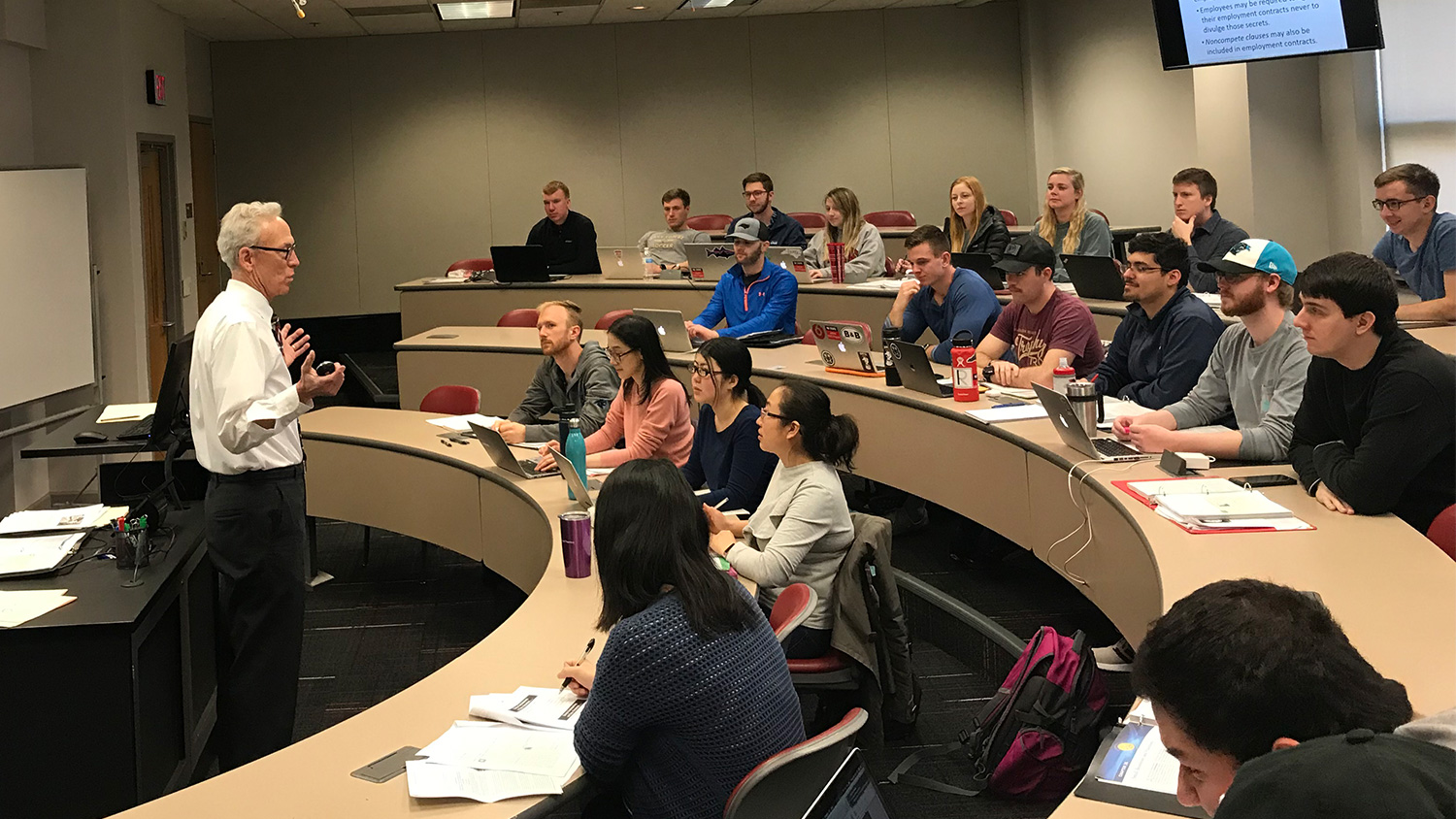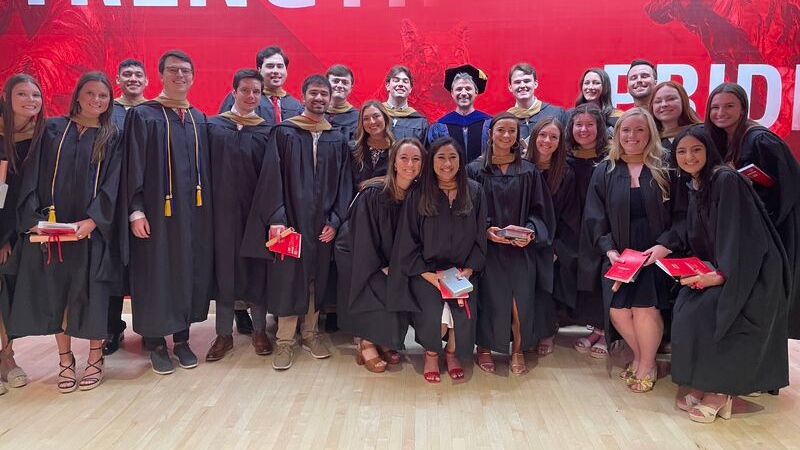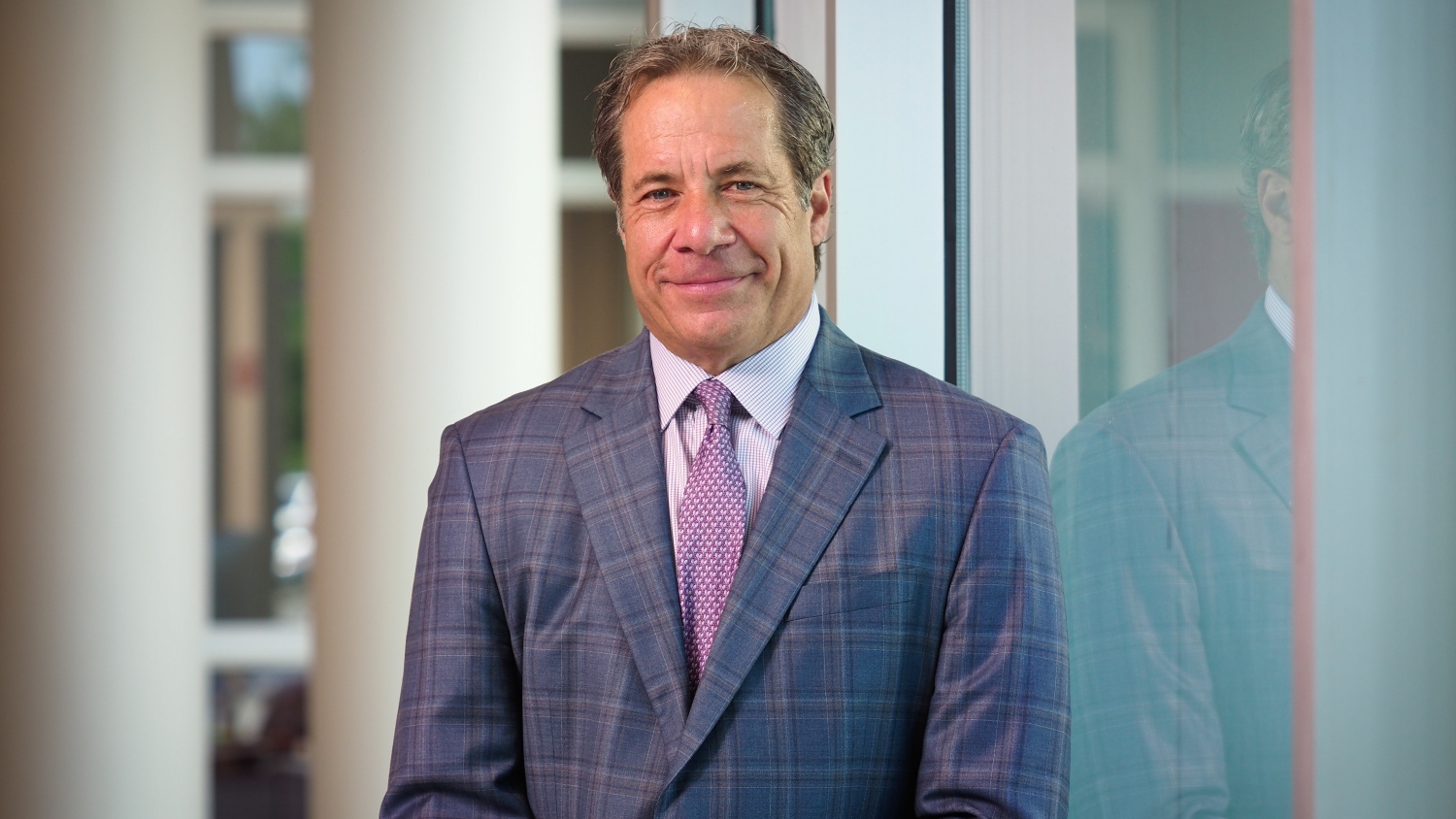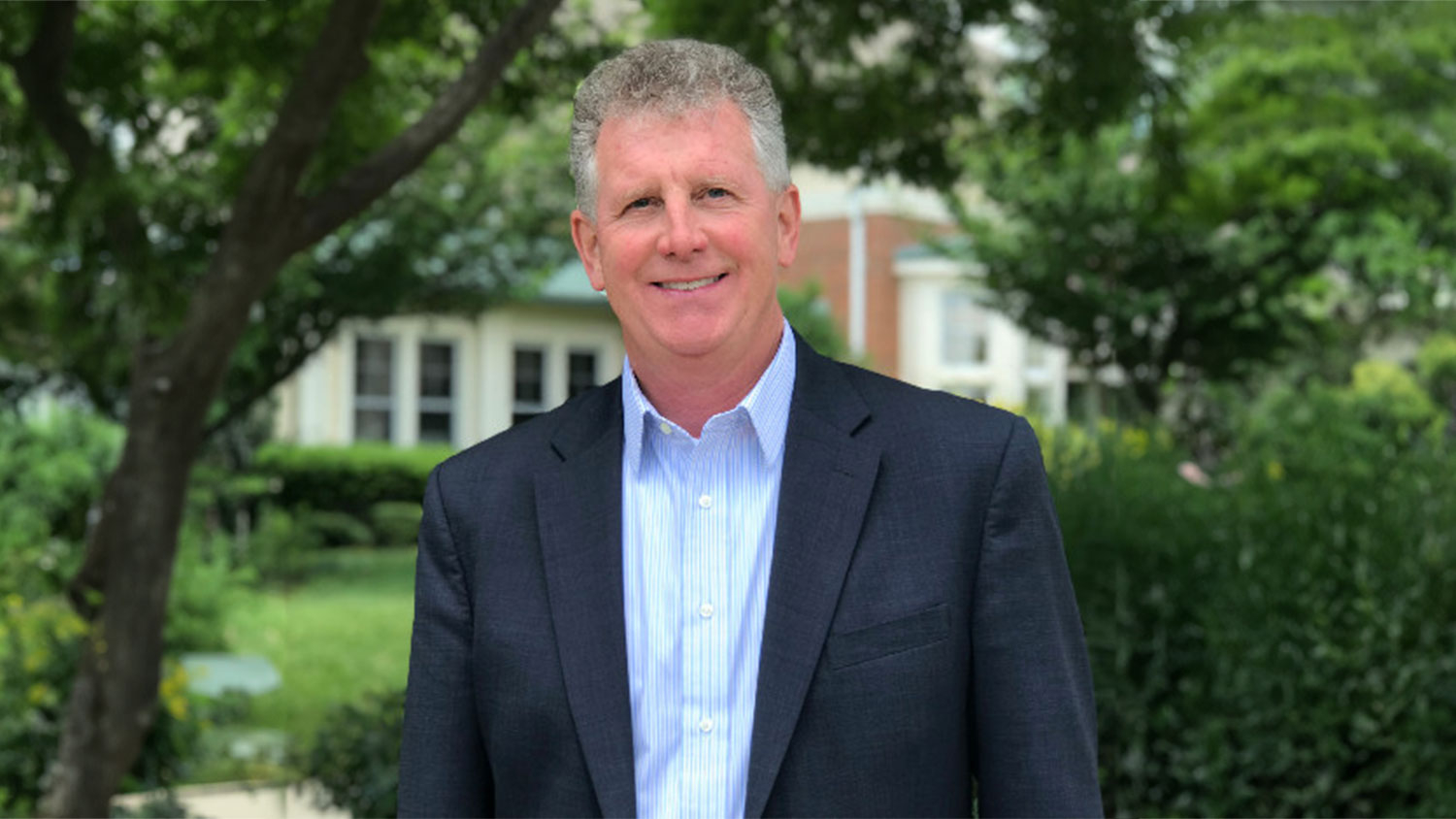Ernest Carraway Reflects on His Career in Law, Tax and Teaching

As a young college graduate, Ernest Carraway, originally from Greensboro, N.C., had no real future plans, but his retirement story shows what can happen when you follow your instincts and accept opportunities that come your way.
Carraway, who has been a lecturer in accounting at North Carolina State University since 1983, is retiring from full-time teaching this spring. He responded to questions from Poole College communications about his career and future plans via an audio recording. Following are excerpts and summaries from his response.
“I grew up in Greenville, N.C., went to UNC (University of North Carolina at Chapel Hill), and graduated in 1974 with a degree in economics.
“When I graduated, I really had no idea what I wanted to do. I considered graduate school, but decided to go to law school, if I could get admitted,” he said. He took the LSAT during the exam period of his final fall semester and scored well enough to be admitted to the UNC Law School. He graduated with his law degree in 1977.
“I had no burning desire to be a lawyer; it was just something I kind of stumbled into, like a lot of things in my life,” Carraway said. He did have several interviews with law firms and “and a couple of offers,” he said, “but I wasn’t exactly sure where I wanted to be or what I wanted to do.”
Starting his Teaching Career
A good friend of his, Jim Bearden, then dean of the school of business at East Carolina University, approached him about an opportunity to teach business law there, “for a year or two until I figured out what I wanted to do,” Carraway said.
“I had never thought about teaching. In fact, being in front of a group people terrified me pretty much in high school and in college. I was shy and easily embarrassed by public attention, so the thought of standing in front of a class never seemed very appealing to me. But, for whatever reason, it did sound kind of interesting so I went back to Greenville and accepted a position to teach at East Carolina. And to make a long story short, I loved it,” he said.
Carraway said he discovered that he “enjoyed teaching – and the interaction with students – very much, and apparently they thought I did a pretty good job of it. It turned out that I had a passion for it.”
At the same time, he also practiced law with a small law firm in Greenville, mostly property law, but also criminal cases for indigent clients. “I tried to make business law come alive by sharing experiences I had in the real world practicing law, so the two jobs seemed to complement each other quite well,” he said.
While at ECU, he also took advantage of the university’s policy that allowed faculty to take one course each semester for free. “I thought that was a great opportunity, so I started taking some tax and accounting courses, initially to enhance my law practice,” he said.
In time, he realized he had nearly enough hours to sit for the CPA exam, even though he had never planned to be a CPA, so he accelerated his coursework pace because it just made sense “to have something to show” for the classes he had taken,” he said. After five years of teaching at ECU, he passed the CPA exam in May of 1982 and accepted an offer to work for the Touche Ross accounting firm in Raleigh.
“I sort of figured my teaching career was over at that point,” but it wasn’t. While in Raleigh, he “stumbled upon an opportunity to do some part time teaching at NC State.”
Tax and Law
After working in the tax department of Touche Ross for two years, Carraway qualified and became a licensed CPA, but then, he said, “I decided that public accounting wasn’t what I wanted to do for the rest of my life.”
He left Touche Ross in 1984 without being sure what was next. He had some interviews and got an offer from Jefferson Standard insurance to travel the country doing training seminars for agents.
At the same time, “a position opened up at NC State for a visiting lecturer, so I took that position which ripened into a full time lecturer position, initially teaching business law. For years, that was all I taught, which I thoroughly enjoyed,” he said.
He also was practicing law in Raleigh, “doing mostly real estate law, and the two jobs coexisted very nicely. I taught classes on certain days and practiced law on other days; both complemented each other,” he said.
After working together with several larger firms, he and Tom Layton formed Layton & Carraway, P.A., where he practiced law until he retired at the end of January 2019.
When the business law course was moved out of the accounting department, he transitioned to teaching undergraduate financial accounting and introduction to federal taxation. He also taught a study abroad session in Germany, “an incredible experience I’ll always treasure,” he said.
Most recently, he has been teaching courses in the NC State Jenkins Master of Accounting program: Advanced Federal Taxation in the fall semester, Advanced Commercial Law in the spring. “I have the MAC students for the entire year so I really get to know them, which I’ve thoroughly enjoyed,” he said.
Beyond Teaching: Service
For more than a decade, Carraway has coordinated the Volunteer Income Tax Assistance (VITA) program at NC State, a service project that he inherited from Lorraine Wright, associate professor of accounting, when she retired. VITA provides Poole College’s accounting students experience with preparing tax returns. “Our students are computer savvy and they do a great job showing folks how to prepare their tax returns using free tax programs available online,” he said, adding, “and it looks good on their resumes.”
Carraway also put his law knowledge to work by serving as a judge on the university’s Student Judicial Board, which hears student misconduct cases. “Being an attorney, it seemed a logical step for me to hear cases involving academic or other types of misconduct,” he said.
He also has taught for the NC State Income Tax School since 1991, providing continuing education and tax law updates for those who prepare tax returns. He and his co-instructor present two-day programs in Fayetteville, Charlotte, Greensboro and at the NC State McKimmon Center in Raleigh.
Beyond his various teaching roles, Carraway has also served as chief judge for the Wake County Board of Elections and serves on the board of directors of the Springmoor retirement community.
Why Retire Now?
A long-time jogger and runner, Carraway said that a recent diagnosis of a leaking heart valve that might require surgery reminded him that “I was mortal, and it occurred to me that none of us are guaranteed a certain amount time or health to enjoy retirement.” That – and a desire to move into the home that he and his wife have on Chocowinity Bay near Washington, N.C., “got me seriously thinking about retiring. I couldn’t keep teaching full time here while living there. It’s a two-hour drive – more of a commute than I want to have.”
While Carraway is leaving behind his physical classroom teaching assignments, he hopes to continue teaching the NC State Income Tax School and doing some online teaching.
Reflecting on his career, he said, “It’s been a wonderful journey. I’m so thankful for the opportunities that I’ve had to meet and work with so many terrific faculty members and students over the years. I can’t imagine a more satisfying career than I’ve had”.
Frank Buckless, long-time head of the Department of Accounting and now interim dean of the college, said, “”Ernest Carraway has been a pleasure to work with for so many years. His concern for our students and positive impact on their experience has been the one constant factor for his entire career.”
- Categories:


